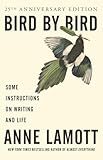 Las hormigas artificiales no son el último gadget que un snob atento necesita tener en casa (¿o si?). La vida artificial consiste en utilizar modelos de simulación para estudiar sistemas complejos. No es que yo sepa sobre esto, pero hoy me he acordado [1] de una conferencia fantástica sobre hormigas artificiales a la que asistí hace años.
Las hormigas artificiales no son el último gadget que un snob atento necesita tener en casa (¿o si?). La vida artificial consiste en utilizar modelos de simulación para estudiar sistemas complejos. No es que yo sepa sobre esto, pero hoy me he acordado [1] de una conferencia fantástica sobre hormigas artificiales a la que asistí hace años.
Las hormigas simuladas son simplonas, como probablemente lo son las de carne y hueso (?): van a por comida, comen un poquito, y llevan el resto al hormiguero. Si encuentran en su camino a otra hormiga, procurando el bien de la colonia, le cuentan dónde han encontrado comida.
Pero, ¡ay!, no todas las hormigas son genéticamente iguales: algunas son de fiar, mientras que otras son unas mentirosas que engañan a sus compañeras para que no se zampen la comida que han encontrado; unas son crédulas, y otras desconfiadas; unas, trabajadoras, mientras que otras deberían haber nacido cigarras; algunas se olvidan de la posición de la comida más facilmente que otras... Mueren, y nacen nuevas hormigas con su propia carga genética que define su grado de actividad, memoria, escepticismo y tendencia a mentir.
Ponemos a nuestras hormiguitas en su hormiguero, definimos la cantidad de comida disponible y las dejamos vivir (?). Independientemente de la disponibilidad de comidad, con el paso del tiempo son mayoría las hormigas con mayor actividad y memoria: las perezosas y las desmemoriadas tienen más complicado comer y sobrevivir.
Cuando la comida es escasa, las hormigas compiten, y mentirosos y escépticos tienen mayor probabilidad de sobrevivir. Cuando la comida es abundante, mentirosos y escépticos desaparecen de la colonia.
Fascinado pensando en cómo de las interacciones de muchas cosas simples surgen cosas complejas, y sin saber encontrar una moraleja en relación a la falsedad y el escepticísmo de las hormigas, acabo ya para ver si ahora funciona esta webcam de un hormiguero...
 [1] Esta conferencia, una de las mejores a las que he asistido en mi vida, la dió Manuel Alfonseca, de la Autónoma de Madrid, ex de IBM, y miembro émerito del Technical Experts Council de IBM. Hoy M. Alfonseca tenía una Carta al Director publicada en La Vanguardia, y ver su nombre me ha llenado la cabeza y este post de hormigas. En su carta, discute la afirmación de Arcadi Navarro en un artículo anterior: "solamente por la ignorancia o la práctica consumada del autoengaño pueden creerse compatibles el evolucionismo y el diseño inteligente".
[1] Esta conferencia, una de las mejores a las que he asistido en mi vida, la dió Manuel Alfonseca, de la Autónoma de Madrid, ex de IBM, y miembro émerito del Technical Experts Council de IBM. Hoy M. Alfonseca tenía una Carta al Director publicada en La Vanguardia, y ver su nombre me ha llenado la cabeza y este post de hormigas. En su carta, discute la afirmación de Arcadi Navarro en un artículo anterior: "solamente por la ignorancia o la práctica consumada del autoengaño pueden creerse compatibles el evolucionismo y el diseño inteligente".
[2] ¡Puaj! Hoy sufro un caso flagrante de tantas ganas de leer (¡e incluso de volver a la universdad!) y tan poco tiempo... Algunos links:










